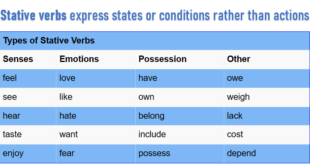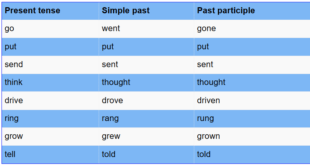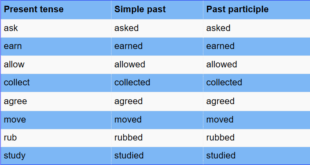Adjectives![]()
Adjectives
An adjective is a word that gives us more information about a noun or pronoun in a sentence.
Attributive use: When we use an adjective word before a noun to describe the noun, this is called attributive use.
- big city
- tall tree
- red hair
Predicative use: When we use an adjective word that comes after a verb and describes the subject, it is called predicative use.
- He is happy.
- The box is heavy.
- He is alive.
Comparative and superlative adjectives
We use a comparative adjective to compare someone or something with someone or something else.
- Daniel is younger than me.
- This tree is taller than that one.
We use comparative adjectives to show that someone or something is changing or developing.
- The woman seems to be getting younger and younger.
- The days are getting longer and longer.
For longer adjectives, we use more and more.
- She is getting more and more beautiful.
- Petrol is becoming more and more expensive.
We use a superlative adjective to compare someone or something to every other person or thing in the group.
- She is the tallest girl in our class.
- Coal is one of the cheapest fuels.
For most longer adjectives, we use more or the most to make them comparative or superlative.
- He is more intelligent than his brother.
- This subject is more important than that.
- Jim is the most intelligent person I know.
- Planes are the most expensive mode of transport in the world.
Adjective of Quality
A word that describes the quality of a noun or pronoun, and it generally answers the question “of what kind?”
Before “nouns”
- a heavy box
- a smart boy
- a beautiful city
After the verb “to be” (am, are, is, was, were),
- That car is red.
- The apples are delicious.
After the verbs “taste, look, seem, feel, get, sound, smell.”
- The food tastes good.
- He looks happy.
Compound adjectives are made up of two or more words.
- a thirty-story building
- a five-minute walk
- a part-time job
- a five-foot-long snake
Adjective of Quantity
- many students
- much milk
- little time
- enough water
- some sugar
- most people
- no money
- few weeks
- whole life
We use “many, no, few, or whole” with countable nouns.
- I don’t have many friends.
- There were no tickets left.
- May I ask a few questions?
- I spent the whole day walking.
We use “much, little, enough, some, no” with uncountable nouns.
- I don’t have much information about this.
- There is enough sugar for all of us.
- The food has little salt.
- Can I have some water?
- I have no money.
Adjective of Number
Adjectives of number indicate the number of nouns or pronouns, or in what order they stand, and answer the question, “How many?”
- I have two pens.
- There are four carrots.
- I stand first in the class.
There are three types of adjectives of number.
Cardinal and ordinal numbers are adjectives of number:
- Definite numeral adjective
- Indefinite numeral adjective
- distributive numeral adjectives.
Definite numeral adjectives describe the exact number or position of the subject in the sentence and use cardinal and ordinal numbers.
- There are five people in the room.
- It was the first time we met each other.
| Cardinal | Ordinal | |||
| 1 | One | 1st | First | |
| 2 | Two | 2nd | Second | |
| 3 | Three | 3rd | Third | |
| 4 | Four | 4th | Fourth | |
| 5 | Five | 5th | Fifth | |
| 20 | Twenty | 20th | Twentieth | |
| 21 | Twenty one | 21st | Twenty-first | |
| 22 | Twenty two | 22nd | Twenty-second | |
| 23 | Twenty three | 23rd | Twenty-third | |
| 24 | Twenty four | 24th | Twenty-fourth | |
| 90 | Ninety | 90th | Ninetieth | |
| 100 | One hundred | 100th | Hundredth | |
| 1000 | One thousand | 1000th | Thousandth | |
indefinite numeral adjectives describe a number but do not tell the exact number.
- We arrived several hours ago.
All students should respect their teachers.
Do you want some more coffee?
I worked hard for many years.
Few people know me here.
You can meet me any day but Monday.
A distributive numeral adjective refers to each one of a number and always comes before a singular noun and a verb.
- Every person should be on time.
- Each of us has an umbrella.
Demonstrative Adjective
- This pen is mine.
- These books are yours.
- That shirt is clean.
- Those shoes are expensive.
We use “this, that, these, and those” as demonstrative pronouns, but they do not come before nouns or pronouns.
- This is my book.
- That is a table.
Distributive Adjective
- Each boat has an anchor.
- Every nation is proud of its culture.
- Either answer is correct.
- Neither sweater fits me.
Each (every person or thing) is regarded separately, one by one.
- Each person had a bicycle.
- Each ticket costs $30.
Every (every person or thing) a regarded as a whole.
- Every member should wear a uniform.
- Every job has its good points.
Either (each of the two)
- Either team played well. [Both teams played well.]
Neither (none of the two)
- Neither answer was correct. [Both answers were wrong.]
Interrogative Adjective
- What time is it?
- Which pen is yours?
- Whose car is this?
We use “what, which, and whose” as interrogative pronouns, but they do not come before nouns or pronouns.
- What is your plan?
- Which is the shortest way?
- Whose is this pen?
Possessive Adjective
- My name is Jacob.
- Is this your pen?
- It’s his car.
- Her hair is blonde.
We use “his” as a possessive pronoun, but it does not come before a noun or pronoun.
- That pen is his.
Adjective order
Opinion comes before fact.
opinion (beautiful, delicious, ugly, interesting)
fact (new, Italian, black, old)
- A beautiful old cottage
- A delicious Italian pizza
A general idea comes before a specific idea.
general (long, new, cold, big)
specific (American, wooden)
- An old wooden chair
- A big American car
A beautiful, long, old, brown American wooden fishing boat.
| Number | First, second, one, two, three |
| Opinion | Pretty, disgusting, funny, tasty, important |
| Size | Big, tall, huge, small, short, little |
| Age | New, old, young, ancient |
| Shape | Square, circular, cubic, triangular |
| Color | Blue, red, green, black, white |
| Origin | Korean, Indian, American, Italian |
| Material | Golden, wooden, plastic, silk, leather |
| Purpose | A sleeping bag, a fishing boat, cooking oil |
Usually, we do not use more than three adjectives in a sentence, but if we do, it’s correct.
| Determiner | Opinion | Size | Age | Shape | Color | Origin | Material | Purpose | Noun |
| a | valuable | old | Italian | clock | |||||
| those | round | wooden | kitchen | tables | |||||
| his | small | black | leather | wallet |



The lessons is very important and interests how i can copy these to myself learn